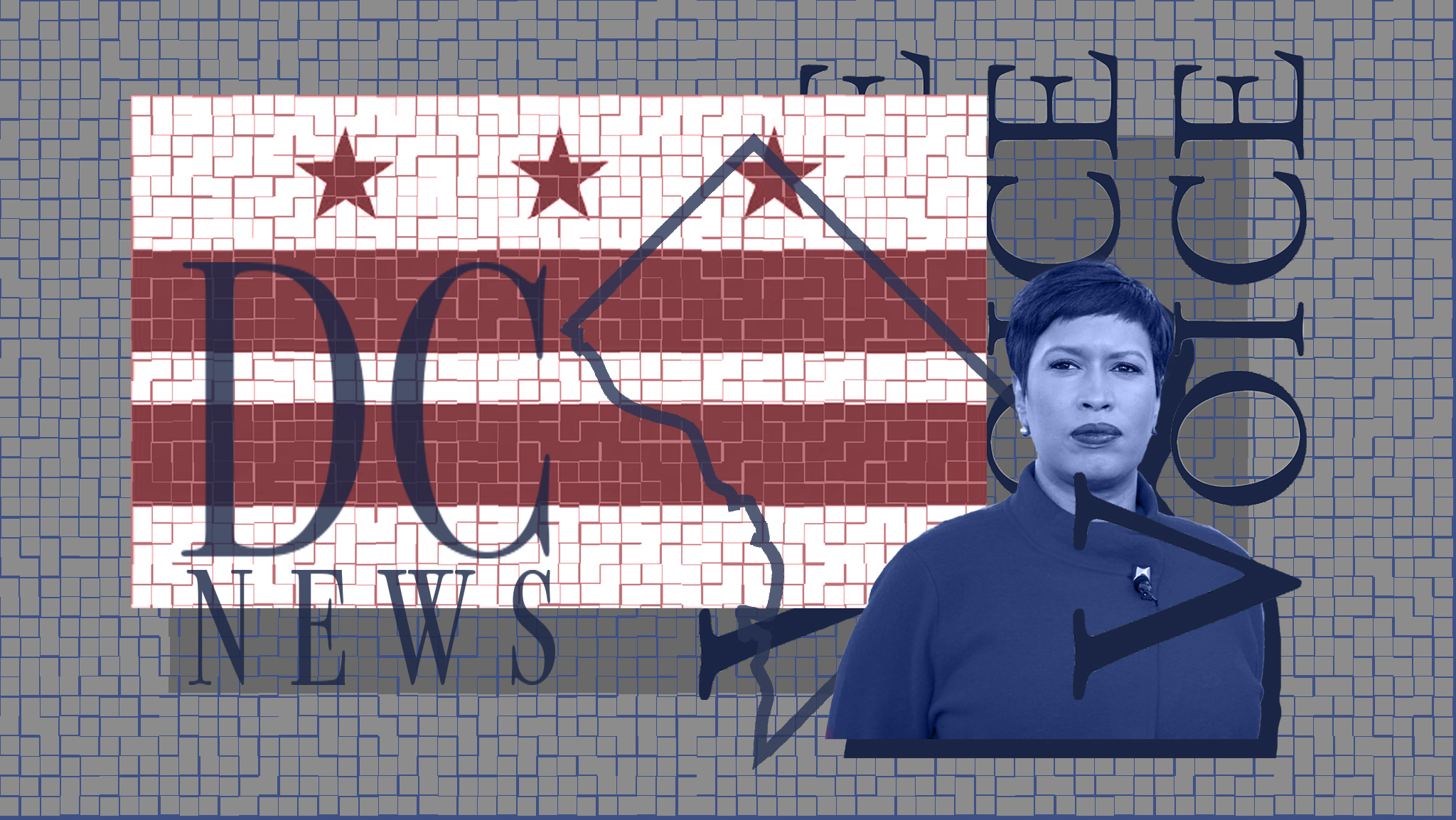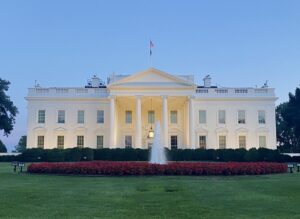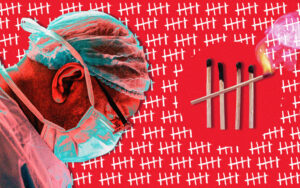Washington, D.C. was the city with more monkeypox cases per capita than any state for several months over the summer, with 436 officially reported cases since Sept. 1. Cases have declined 20 percent on average since July, however, due partly to a strong vaccination effort.
In early May 2022, cases of monkeypox began appearing in countries where the disease is not endemic, and the case count has since increased in both endemic and non-endemic countries, such as the U.S. As of Sept. 7, the states of New York and California have the highest domestic case count, with 3,526 and 3,833 cases respectively.
Monkeypox is caused by the monkeypox virus, which is in the same family as the smallpox virus. Individuals who have contracted the disease may experience symptoms including fever, chills, and the appearance of a rash that can look like pimples or blisters and may be painful or itchy.
While most cases do not result in hospitalization, the virus is highly contagious. It can spread through intimate physical contact, respiratory secretions, and coming into contact with fabrics used by someone with monkeypox.
On June 22, Georgetown University reported its first presumptive case of monkeypox in a community member. Through an email sent to the Georgetown community, Dr. Ranit Mishori, Georgetown’s vice president and chief public health officer, alerted students and staff of monkeypox-like symptoms experienced by a community member living off-campus. The individual was in isolation and received support from the university and D.C. Health. Those in close contact with the individual had also been notified.
According to a university spokesperson, there has since been a second confirmed case within the Georgetown community. Both individuals are now out of isolation and doing well.
“The university’s Public Health team will continue to work closely with the Student Health Center (SHC) and the Infectious Diseases Department at MedStar Georgetown University Hospital to identify, test, and manage suspected and confirmed cases,” a university spokesperson wrote in an email to the Voice.
The university asks members of its community to isolate if they experience any monkeypox symptoms. Students will receive support from the Student Health Center and the Care Navigation team.
Case prevalence in the broader D.C. community, however, reflects grim disparities. According to Dr. LaQuandra Nesbitt, the director of D.C. Health, members of the LGBTQ community in their early 30s have been disproportionately affected by the virus. More than 90% of D.C.’s current cases are individuals who identify as gay.
Nonetheless, monkeypox is a virus that can infect anyone. However, homophobic social media posts have been circulated, creating the misconception that monkeypox is spread only through gay sex. The D.C. government is receiving positive feedback from LGBT residents on the actions it has taken to reduce the spread of false information.
“It is important that we do not create stigma at this time and that we encourage individuals to be on the lookout for symptoms,” Nesbitt emphasized in a July 18 news conference.
The city has struggled to provide sufficient testing for monkeypox, however, creating uncertainty regarding the exact number of cases in D.C. However, more tests have recently been obtained through Labcorp and Quest Diagnostics, both of which are medical testing laboratories companies. These tests have been distributed to nearly every provider in D.C., so individuals do not have to go to emergency rooms or sexual health clinics to get tested.
To reduce transmission, the CDC recommends avoiding close skin-to-skin contact with individuals who have a monkeypox-like rash, washing your hands often, and not handling fabrics touched by an infected person. The CDC also suggests vaccination, especially for those who have been exposed to the virus or have a higher risk of contracting it, such as healthcare workers.
Contact tracing has been helpful in identifying 530 close contacts in the D.C. area. However, the virus’ nature makes it difficult for thorough contact tracing, which is why health organizations in the District are attempting to vaccinate the community as soon as possible.
“We know there are these exposures in the community but we can’t actually track them down and say you are at risk,” Patrick Ashley, senior deputy director at the D.C. Department of Health, said.
As of Sept. 7, D.C. Health has administered more than 28,000 doses of the JYNNEOS vaccine, which has a two-dose regimen. However, this represents a small fraction of D.C.’s population, and D.C. has postponed several second-dose appointments in favor of giving more people their first dose
Mayor Muriel Bowser and Nesbitt are encouraging D.C. residents to pre-register for a vaccine appointment. The city recently expanded the eligibility requirements to include people of any gender or sexual orientation who have had multiple sexual partners in the past two weeks; the goal was to reduce stigmatization of individuals seeking the vaccine. Vaccines are also set aside for those who have been directly exposed to a confirmed case.
D.C. residents not currently eligible are allowed to pre-register for vaccination and will be alerted once eligibility changes. As of Aug 2, 23,000 D.C. residents have preregistered for the vaccine, 16,589 of which are currently eligible.
“We have seen overwhelming interest in the vaccine,” Nesbitt said. “We’re working very quickly to get those doses out to our public.”
The city has also removed intrusive questions from the vaccination process.
With the limited number of doses available, individual clinics and universities will not be administering vaccines, so it must be done through the D.C. government.
D.C. Health is continuing to receive vaccine deliveries from Denmark, but officials say these quantities are still not enough to meet demand. “We have seen the pace at which the doses coming to the U.S. from Denmark increase, [but] we would like it to still be faster,” Dr. Nesbitt explained.
The COVID-19 vaccination distribution process has highlighted the wide racial and socioeconomic gaps and flaws of the District’s public health infrastructure. White people represent 37 percent of cases and Black people account for 36 percent; the vaccination rates are less similar: 55 percent of people getting vaccinated are white and 20 percent are Black.
To mitigate the racial and socioeconomic disparities from preventing monkeypox vaccination, D.C. is implementing a more equitable strategy with scheduling being done based on demographics and eligibility instead of location.
Dr. Nesbitt is working on hosting pop-up clinics with the help of partners, especially those serving the Black LGBTQ community. Some vaccine doses have been administered through organizations such as Whitman-Walker and Us Helping Us, both of which have been known to provide support to those living with AIDS.
The D.C. government has also partnered with TPOXX, an antiviral that helps those with weakened immune systems and others who are more likely to become seriously ill due to infections. A 24-hour hotline has also been set up by D.C. Health to provide guidance to healthcare professionals who believe a patient has monkeypox.
On Aug. 3, D.C. officials said that monkeypox has spread to the homeless community with at least two cases being confirmed. Plans are now underway to expand a COVID-19 isolation and quarantine site at a hotel for those experiencing homelessness to include people exposed to and suffering from monkeypox.
“We want people just to be very aware that this is going on in the community and to take appropriate precautions,” Ashley said.




